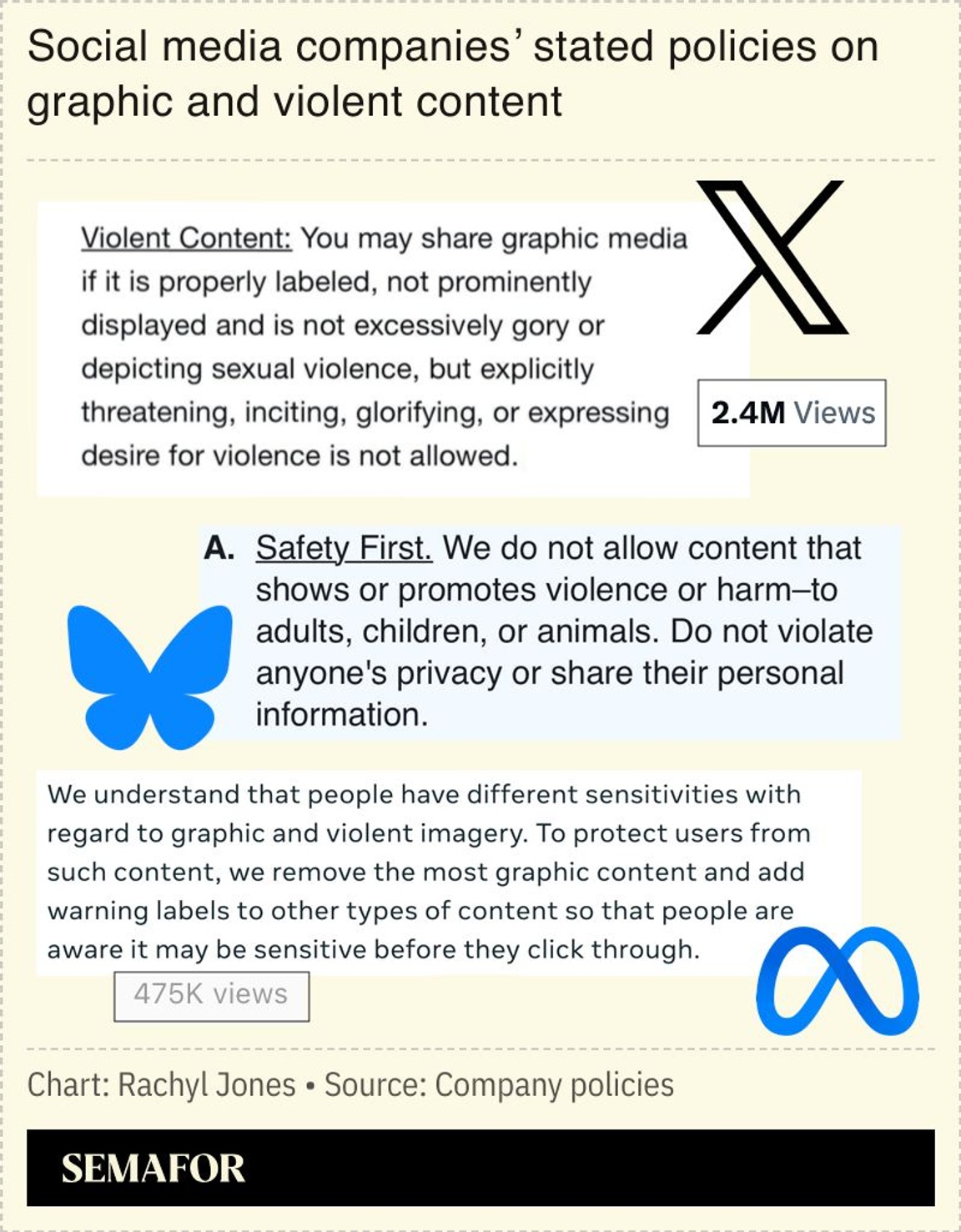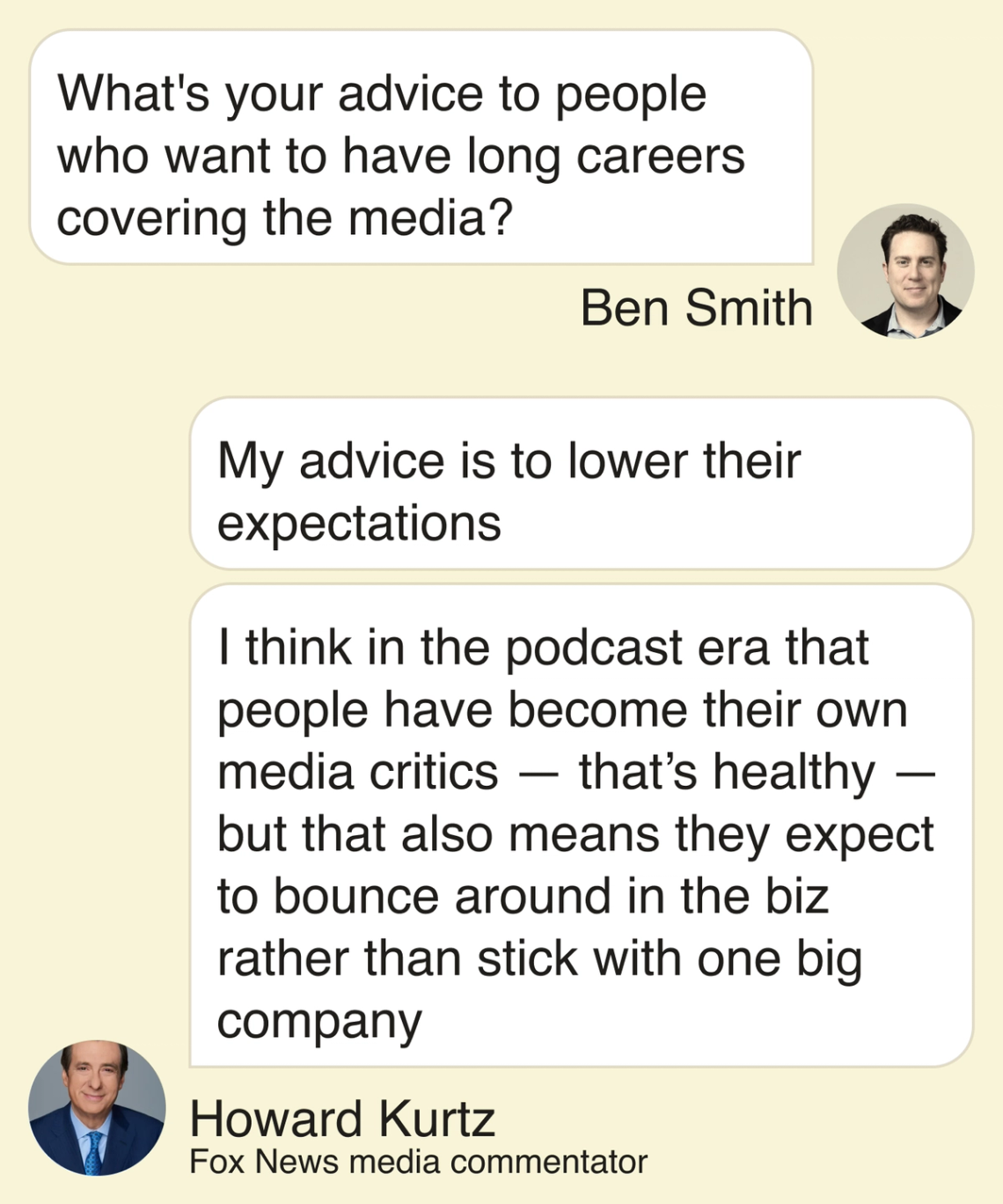| | In today’s edition: left media outlets’ growth. ͏ ͏ ͏ ͏ ͏ ͏ |
| |   Washington Washington |   London London |   Menlo Park Menlo Park |
 | Media |  |
| |
|
 - New left media’s moment
- Equator’s new line
- Mixed Signals
- Kirk death videos
- Frontiers in bundling
|
|
 Our political era has been defined by the remarkable speed with which figures from the fringes can meaningfully reshape the mainstream political and cultural conversation. Donald Trump left a fading reality show career to become the key political figure of the 21st century. Robert F. Kennedy Jr., once mocked as a celebrity oddball and quack over his vaccine skepticism, now sits atop one of the most powerful public health entities in the world. This week’s newsletter looks at the rise of a new generation of online progressives, long dismissed, who are flexing their muscles in Democratic politics and hoping to achieve the same escape velocity. We saw the deadly consequences of a different kind of online fringe crashing into public view last week. Partisans are continuing to debate the political views that motivated Charlie Kirk’s alleged killer, but the few clues that do exist have forced the country to stare into the strange, dark, and cynical world of online gamer culture and shitposting. Unmoderated speech across digital platforms is continuing to reshape who controls the ideas in America. In some cases, it serves power; in others, it’s challenging the status quo. But Americans may be getting sick of it all — a view reflected by Utah Gov. Spencer Cox, who in the wake of Kirk’s killing told people to “log off, turn off, touch grass.” Also today: Drop Site News gets a surprise publisher, some high-profile post-Americans have a new magazine, and social media platforms can’t keep you from seeing those Kirk videos. |
|
Drop Site gains a publisher, and the left gains momentum |
 Al Lucca/Semafor Al Lucca/SemaforNika Soon-Shiong, the daughter of LA Times owner Patrick Soon-Shiong, has her next gig in media lined up — and it offers a glimpse at the generational shifts underway within the digital media landscape writ large. She will become the publisher of Drop Site News, a year-old progressive-left news outlet that’s won a following for its critical coverage of Israel’s war in Gaza and its proven ability to publish scoops. “Drop Site’s small, all-star team proves there’s an audience for investigative journalism that’s transparent, brave, and humane,” the younger Soon-Shiong told Semafor. Her move comes at a moment of intense energy around expressly left-of-center media, propelled by increasing frustration among progressives, leftists, and even some liberals with the state of the Democratic Party, the ascendancy of the American right, and the Gaza war. Outlets like Drop Site and Zeteo have benefited, as have smaller independent outfits like reporter Ken Klippenstein’s national security-focused Substack. And as they’ve gained prominence and subscribers, they’ve also begun to garner broader political salience, Max writes. |
|
New ‘post-American’ global read |
 Courtesy of Equator Courtesy of EquatorA group of high-profile writers in London is launching a new magazine called Equator “to challenge the reigning assumption that global events should be narrated by and for the West,” according to a description shared with Semafor. Its founding team includes Pankaj Mishra, Mohsin Hamid, Nesrine Malik, Samanth Subramanian, and Suzy Hansen, with editing by Guardian long reads creator Jonathan Shainin. “In a post-American era, the task of a new magazine is to engage the rich variety of this historical moment on its own terms, without compulsively asking ‘What does it mean for the US?’” the nonprofit outlet will ask. A description on Equator’s launch homepage contains a tacit critique of publications from The New Yorker and The Atlantic to the Economist, New York Times, and Financial Times: “A new world is emerging from the ruins of the liberal order. But the prestige publications of the West are ill-equipped to comprehend its challenges — and its possibilities.” |
|
 This week, a special episode featuring Josh Spanier, VP of marketing at Google, who you might recognize from our branded segments. In this sponsored episode, presented by Think with Google, Ben asks Josh about how Google thinks about advertising, how he’s navigated the technological changes in that space, and if AI is going to homogenize all of the ads we see. Josh also answers some listener questions about how advertisers work with creators and what the biggest blind spots in marketing are today. |
|
Platforms struggle to slow spread of gory Kirk videos |
Social media companies that radically reduced their content moderation found themselves struggling to take down widely accessible and graphic videos of the assassination of Charlie Kirk. Within minutes of the event, close-up videos of the shooting from multiple angles began circulating on social media platforms, including in users’ algorithmically curated “For You” feeds. By Friday morning, nearly two days later, companies were still struggling to handle the volume.  Meta told Semafor it was working to add sensitive content labels to videos of the shooting and remove posts glorifying it, per its policies. Content moderators at TikTok took down especially gory or close-up footage of Kirk’s death, but allowed clips shot from further away to stay up with warning labels, a TikTok spokesperson said. That platform’s policies allow some content that would typically violate its rules to remain visible if it is “in the public interest.” Bluesky said it has been removing the close-up videos and suspending some accounts. X didn’t respond to a request for comment. Social media companies have added AI to their content moderation practices to help remove graphic posts before people see them. But AI struggles with satire and context, requiring companies to continue employing human content reviewers — 15,000 in Meta’s case, a spokesperson said. Still, the response indicates the real-time virality of violence is a problem too large to solve with existing practices. That may only be exacerbated as AI-generated content becomes more indistinguishable from real videos. — Rachyl Jones |
|
 Eric Gaillard/Reuters Eric Gaillard/ReutersIn a rebundling media world, the key is having a bundle that people feel like they need to pay for. David Ellison’s whirlwind Skydance dealmaking offers the promise of a unique collection of properties: CBS News, HBO, CNN, Paramount’s studio library, Bari Weiss’ Free Press, South Park (surprisingly zeitgeisty, 27 seasons on), UFC streaming rights, an IP strategy that includes video game movies and the creative minds behind Netflix’s Stranger Things, and a streaming service in the newly un-rebranded HBO Max that expects to have 150 million users next year. That’s before the really intriguing bit: TikTok. Ellison’s father, who became the world’s richest man this week when shares of his company, Oracle, soared on AI promise, has Trump’s blessing to buy the app, pending a long-shot deal with the app’s Chinese owners. It’s not clear that TikTok is a must-buy, but it’s clearly one thing people can’t get elsewhere. — Liz Hoffman |
|
Howard Kurtz hosted the long-running MediaBuzz program on Fox News, which aired its last episode today.  |
|
 - Correction: Several media companies, including The Associated Press, Reuters, and Semafor, walked back a story that reported that LeBron James penned an op-ed for Chinese state-sponsored media. During a recent trip to China, James sat for an interview with People’s Daily, which the paper initially claimed was an opinion piece written by the NBA superstar himself.
- Texting Times: The New York Times is beginning to incorporate text message-based opinion surveys into its polls, an attempt to solve for increasingly unreliable telephone polling.
- History resumes: Francis Fukuyama writes that “the Ellison father-son moves are in the mode of Silvio Berlusconi’s takeover of Mediaset.”
|
|
 The Signal Interview: Paul Hudson is pushing for a return on AI investment by telling employees to “disrupt yourselves.” → |
|
|
|